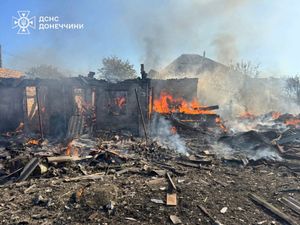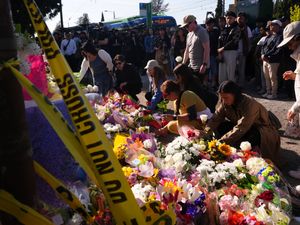Mediators work on plan for long-term truce as Israeli strike on Gaza kills 23
Egypt and Qatar are developing a proposal including the withdrawal of Israeli forces from Gaza and the release of Palestinian prisoners.
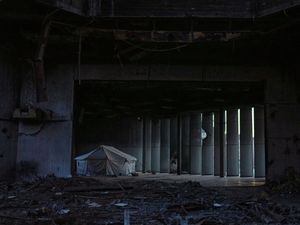
Arab mediators are working on a proposal to end the Israel-Hamas war that would include a five- to seven-year truce and the release of all remaining hostages, officials said on Wednesday.
Israeli strikes on the Gaza Strip killed 23 people overnight, according to local health authorities.
Egypt and Qatar are still developing the proposal, which would include the gradual withdrawal of Israeli forces from the entire strip and the release of Palestinian prisoners, according to an Egyptian official and a Hamas official.
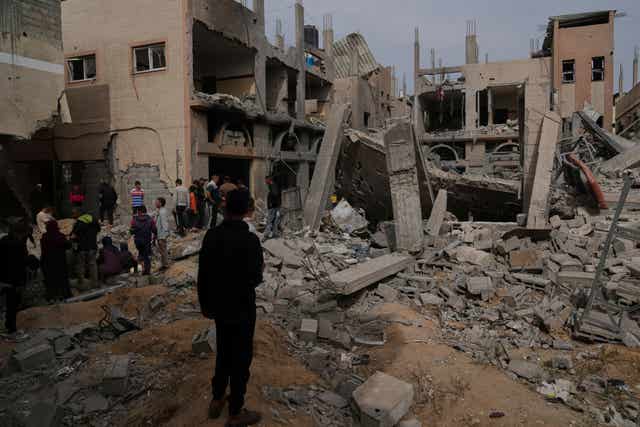
Israel ended a ceasefire with Hamas last month and has vowed to continue the war until all the hostages are returned and Hamas is either destroyed or disarmed and sent into exile.
It has sealed off the territory from all imports, including food, and says it will hold parts of it indefinitely.
Hamas has said it will only release the dozens of hostages it still holds in return for Palestinian prisoners, a complete Israeli withdrawal and a lasting ceasefire, as called for in the now-defunct agreement reached in January.
A Hamas delegation arrived in Cairo late on Tuesday to discuss the evolving proposal.
The Egyptian official said the proposed truce, with international guarantees, would last between five and seven years, and that a committee of politically independent technocrats would govern Gaza — a measure Hamas has accepted.
The Hamas official said the militant group is open to a long-term truce that includes the complete withdrawal of Israeli forces and international guarantees, naming Russia, China, Turkey or the United Nations Security Council as possible guarantors.
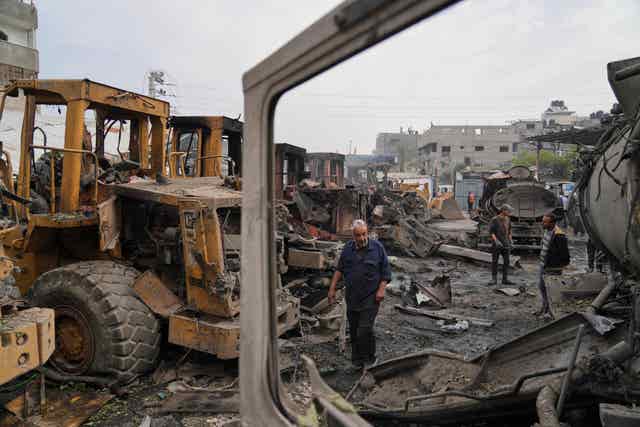
Turkey, a regional heavyweight that has had tense ties with Israel in recent years, recently joined the negotiations, the Egyptian official said.
There was no immediate comment from Israeli officials, but Israel has ruled out any arrangement that would allow Hamas to preserve its influence in Gaza and rearm.
The Trump administration, which has also been involved in the ceasefire talks, has said it fully supports Israel’s position.
Israel and the US have pressed Hamas to accept a temporary truce in which it would immediately release several hostages in return for vague promises of talks on a more permanent ceasefire.
Hamas has rejected those proposals and says it won’t disarm as long as Israel occupies Palestinian territory.
The Hamas official said the group does not trust either Israeli Prime Minister Benjamin Netanyahu or the US after they shattered the existing ceasefire agreement, which had facilitated the release of more than 30 hostages.
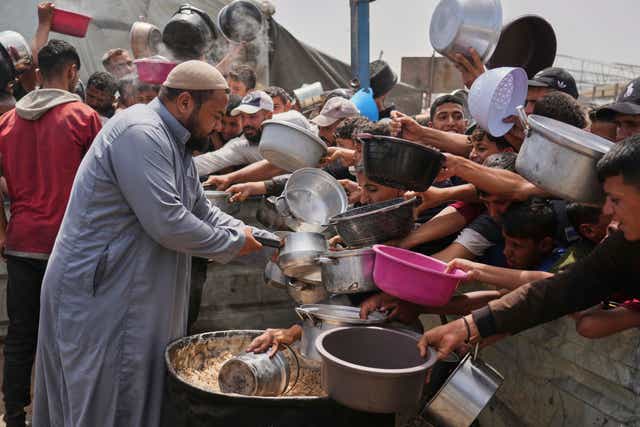
The Egyptian official said mediators had the impression that US President Donald Trump wants a deal before he visits the region next month.
Mr Trump will travel to Saudi Arabia, Qatar and the United Arab Emirates from May 13 to May 16.
Israel ended the ceasefire last month by launching a surprise bombardment across the territory that killed hundreds of Palestinians.
Ground forces have since expanded a buffer zone along the border, encircled the southern city of Rafah and now control around 50% of the territory.
Israel has also sealed the territory off from all food, fuel, medicine and other supplies since the beginning of March, in what it says is a tactic to pressure Hamas to release hostages.
Aid groups say thousands of children are malnourished, and most people are surviving on one meal a day or less.
An overnight strike hit a school-turned-shelter in Gaza City, killing at least 23 people, according to Zaher al-Waheidi, the Health Ministry official in charge of records.
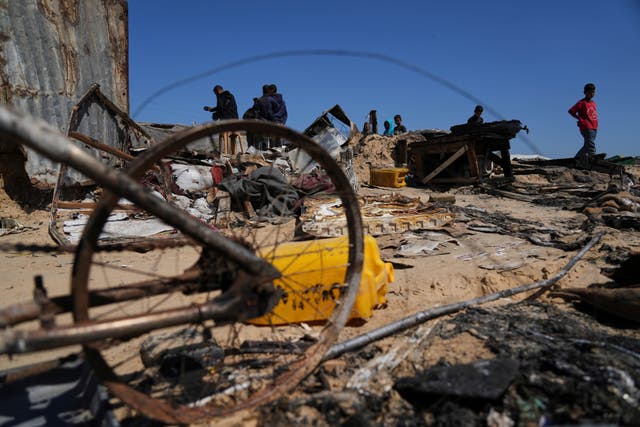
The Civil Defence, first responders who operate under the Hamas-run government, said it recovered another four bodies from strikes on two homes in the same area. It said there are more people trapped under the rubble.
There was no immediate comment from the Israeli military, which says it only targets militants and blames Hamas for civilian casualties because the militants are embedded in densely populated areas.
Israel’s offensive has killed more than 51,000 Palestinians, mostly women and children, according to the ministry, which does not say how many of the dead were fighters or civilians.
Israel says it has killed around 20,000 militants, without providing evidence.
The war began when Hamas-led militants stormed into southern Israel on October 7 2023, killing some 1,200 people, mostly civilians, and abducting 251.
The militants still have 59 hostages, 24 of whom are believed to be alive, after most of the rest were released in ceasefire agreements or other deals.


